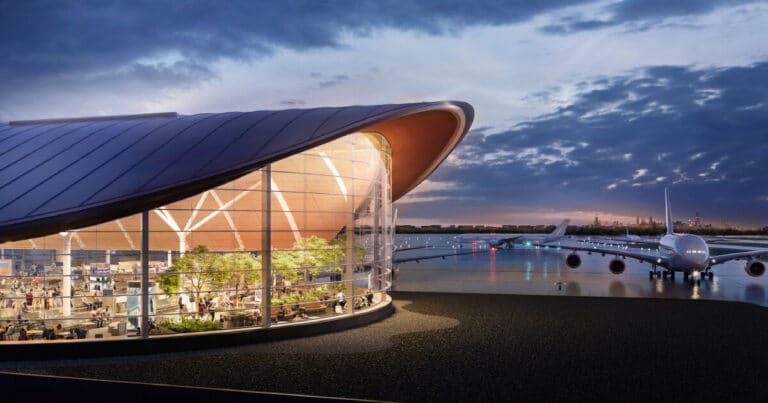Miami’s Innovative Floating Padel Court: Sustainability Meets Sport
A floating padel court made from shipyard steel. This eco-conscious initiative merges sports, architecture, and environmental stewardship, offering a unique experience for players while highlighting sustainable design. The court, currently stationed near Fisher Island, will remain in Miami until May 2025 before relocating to The Exumas as part of a luxury development. Below, we explore the court’s design, environmental impact, and future plans.

Design and Sustainability
The floating padel court spans 16.4 x 38.4 x 71.5 feet and weighs 84 tons , designed to withstand marine conditions while minimizing ecological harm. Recycled steel from decommissioned shipyards entirely forms the structure, reducing waste and conserving resources. Unlike traditional floating platforms, the court operates without engines or batteries, relying on passive buoyancy systems to stay afloat.”This approach aligns with global efforts to promote circular economies that reuse materials to reduce carbon footprints.”
Key Specifications of the Floating Court
| Feature | Details |
|---|---|
| Dimensions | 16.4 ft (width) x 38.4 ft (length) x 71.5 ft (height) |
| Weight | 84 tons |
| Materials | Recycled shipyard steel |
| Energy Use | Zero emissions (no engines/batteries) |
Location and Timeline
The court is currently anchored near Fisher Island, a hotspot for water sports and tourism in Miami. Its temporary stay in the harbor serves as a trial phase, allowing adjustments based on user feedback and environmental monitoring.

Future Integration in The Exumas
In The Exumas, the court will complement a mixed-use development featuring a luxury hotel, residential villas, and a superyacht marina. This project aims to blend recreational activities with sustainability, positioning The Exumas as a destination for eco-conscious tourism. The court’s relocation underscores the potential of adaptive reuse—transforming industrial materials into functional, low-impact amenities.
The Rise of Padel as a Global Sport
Padel, a hybrid of tennis and squash, has gained popularity for its accessibility and social nature. The sport is played on enclosed courts, often in doubles, fostering community engagement. The floating court in Miami introduces a novel setting, combining athletic competition with scenic waterfront views. This innovation could inspire similar projects in coastal cities seeking to expand recreational spaces without land-based construction.
Environmental Impact and Challenges
While the court’s use of recycled steel is commendable, marine installations pose challenges such as corrosion resistance and habitat disruption. To mitigate these, the structure incorporates anti-corrosive coatings and is positioned to avoid sensitive ecosystems. Long-term monitoring will assess its effects on water quality and marine life.

Frequently Asked Questions (FAQ)
- What is a floating padel court?
A padel court built on a buoyant platform, designed to float on water while using sustainable materials. - Where is the court located?
Currently near Fisher Island, Miami Harbor; moving to The Exumas, Bahamas, in 2025. - How is the court powered?
It requires no energy, relying on recycled steel and natural buoyancy. - What happens after its Miami trial?
It will become a permanent amenity in The Exumas’ luxury development. - Is this project environmentally safe?
Measures like anti-corrosive materials and careful placement aim to minimize ecological harm.
Summary Table: Key Project Details
| Aspect | Details |
|---|---|
| Location | Miami Harbor (until May 2025) → The Exumas, Bahamas |
| Sustainability | Recycled steel, zero emissions |
| Purpose | Promote eco-friendly sports, test marine installations |
| Future Plans | Integration into a luxury resort with hotel, residences, and marina |
This project exemplifies how creativity and sustainability can redefine urban and coastal spaces. By repurposing industrial materials and prioritizing low-impact design, it sets a precedent for future recreational developments worldwide.







